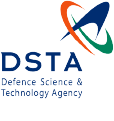R is a programming language developed for statistical analysis and graphical data representation. This introductory R course provides a strong foundation in R fundamentals, covering essential concepts such as R syntax, data types, objects, and the use of functions and packages. You’ll gain a practical understanding of how to work with data in R and begin building your own scripts for analysis.
Classes are delivered as per schedule. We recommend completing both the R Beginner and R Programming Intermediate courses together for the best learning experience.
By the end of this course, participants will be able to:
- Understand the basics of R, including its structure and purpose
- Use R data types and objects
- Write and apply basic R syntax
- Create and manipulate objects in R
- Use functions effectively
- Create basic data visualisations using R packages
Prerequisite:
No formal prerequisites. However, we recommend completing both R Beginner and R Intermediate courses for the best learning experience.

 Australia
Australia New Zealand
New Zealand
 Singapore
Singapore
 Malaysia
Malaysia
 Philippines
Philippines
 Thailand
Thailand
 Indonesia
Indonesia
























